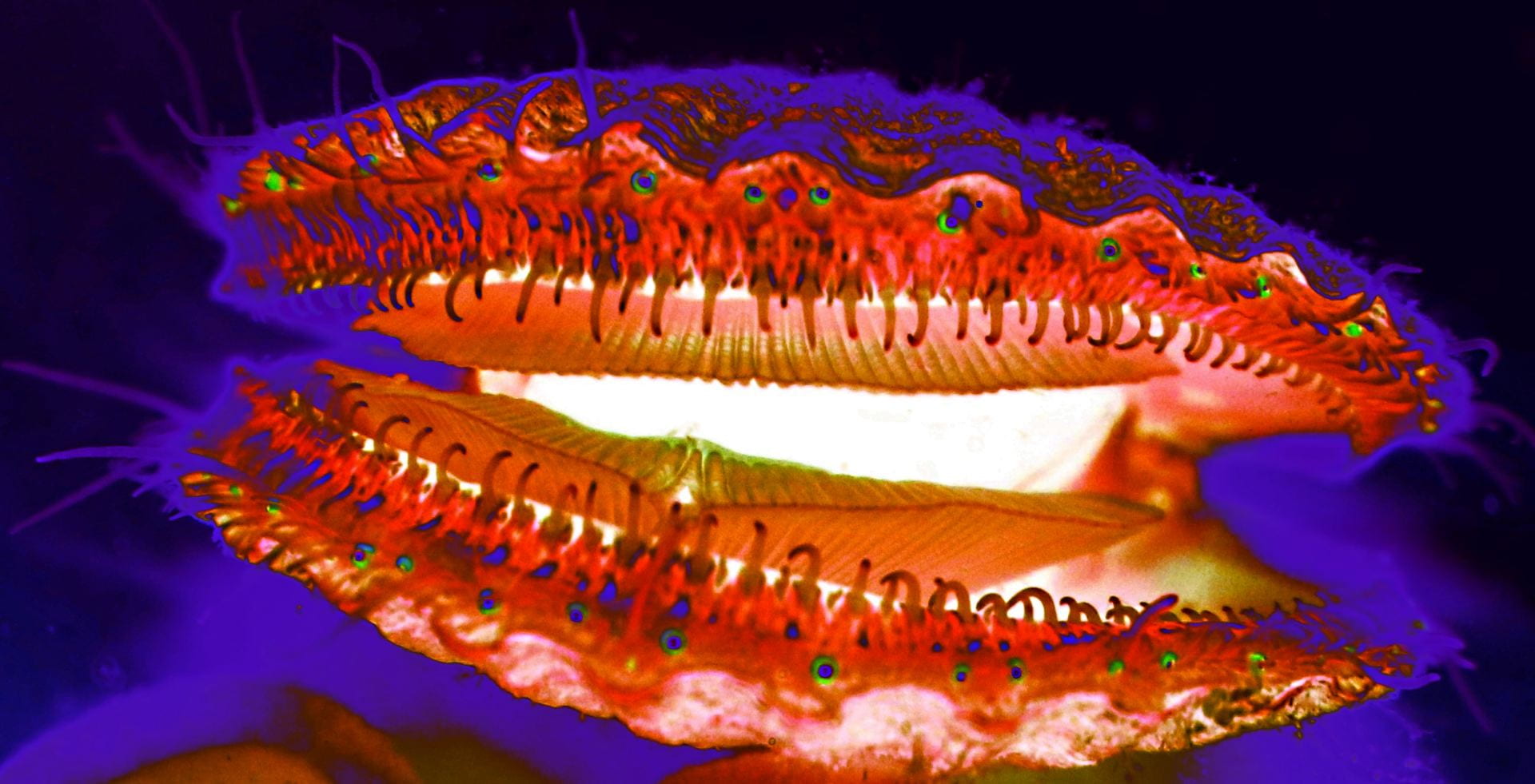Strange but true: Oysters love sweets too!
August 17th 2019
Everybody love sweets so do oysters, clams and mussels. Join us as we meet with a local scientist to learn how these organisms feed but also how they select their food from a complex plankton mix with no eyes, no hands, no nose and no taste buds.
Credit: Emmanuelle Pales Espinosa, Halloween Scallop
Interviewing Emmanuelle
Where did you go to school?
I went to school in France, University of Paris 6 and University of Nantes (Brittany) where I received a Ph.D. in Biological Oceanography.
What is your area of research?
I study bivalve physiology and most specifically their feeding mechanism. Oysters and mussels are picky and they select their food. I would love to discover how these simple organisms are able to separate particles they love from the ones they don’t.
Who or what inspired you to become involved in marine science?
I grew up in Brittany, the western part of France surrounded by the ocean on 3 sides. Living far from the ocean is just impossible to me. One of my favorite childhood memories was clamming along the shore with my great grand-mother, so I guess that the strong maritime tradition in my region and my family inspired me.
What qualities do you think are important in order to become a scientist?
Passion first, then rigor and a little bit of stubbornness.
Why is your research topic important?
In marine ecosystems, bivalves contribute to fundamental ecological functions including the regulation of energy fluxes. They remove phytoplankton and clear water, produce biodeposits, and cycle dissolved nutrients. Their trophic position allows these organisms to control energy fluxes and nutrient transfer in the food web.
What will you be bringing with you to the “meet with an Oceanographer” day?
I will be bringing some videos and seawater tanks with different bivalve species.
What is the best advice you have for people interested in becoming involved in your field of research or in marine sciences?
A lot of work and passion but it’s worth it
What is your favorite ocean organism?
For the sight, sea otter; for the taste, a lot of different seafood….
Want to learn more about Emmanuelle’s research? Visit her web page
